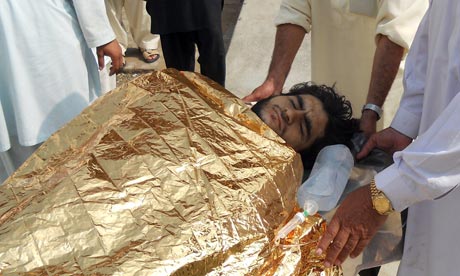By Brian Lanciault
Impunity Watch Reporter, Asia
BEIJING, China– Ji Zhongxing, a paralyzed Chinese man who detonated a home-made bomb in Beijing’s airport after trying to draw attention to a nearly decade-long legal battle, was sentenced to six years in jail. The verdict has sparked widespread sympathy and anger.

A Beijing court found Ji Zhongxing, 34, guilty of intentionally causing an explosion, Ji’s lawyer, Liu Xiaoyuan, told Reuters by telephone. State media confirmed the sentence.
Ji detonated the bomb at Beijing airport in July after he was prohibited from handing out leaflets that drew attention to his complaints. His case resonated with many Chinese citizens seeking justice in an inflexible political system.
Ji, from eastern Shandong province, had been seeking redress for an alleged beating by police in southern Guangdong province in 2005 that left him wheelchair-bound. He had been petitioning for justice ever since.
Detonating the bomb at Beijing’s main airport ensured widespread exposure for Ji. Fortunately, the only people hurt were Ji and a policeman who sustained mild wounds.
Ji faced a maximum sentence of 10 years.
“We believe that this verdict is questionable,” Liu said, adding that Ji did not intend to blow up the airport or commit suicide.
“During the trial, (authorities) did not seek to find out the facts,” Liu said. “Although it was mentioned in the verdict statement, they never fully considered or discovered the cause of the bombing at the airport.”
Liu said Ji, who was brought into court on a stretcher, would consider appealing the conviction. He has 10 days to file a timely appeal. Ji’s father, Ji Darong, suggested to reporters that there would be an appeal against what he described as “this injustice”.
“We refuse to accept this,” said Ji Zhongji, Ji Zhongxing’s brother. “In Guangdong he was beaten and nobody did anything for eight years. Shouldn’t they investigate that?”
Ji’s sentence comes weeks after the execution of a Chinese kebab vendor, convicted of killing two city officials, sparked public criticism of a justice system. Critics claim the system operates to punish the poor harshly while letting the rich and powerful off more lightly.
Dozens of police officers stood guard outside the courthouse and cordoned off a large area, preventing his supporters from massing outside as they had done during Ji’s trial in September.
Zhao Min, a petitioner from northern Hebei province, said she supports Ji “because he’s a disabled person who tried to push forward fairness in the legal system”.
“He only did it because he had no alternative,” Zhao told reporters. “Because he couldn’t get any resolution through legally petitioning many times.”
According to state media, authorities in Guangdong have promised to look again into Ji’s original complaint. Chinese unable to win redress for grievances have in the past resorted to extreme measures, including bombings, but such incidents remain rare because of tight state security.
For more information, please see:
BBC News– Beijing airport explosion man jailed — 14 October 2013
Indian Express– Beijing airport bomber receives 6-year sentence — 15 October 2013
The Independent– Beijing wheelchair-bound airport bomber jailed for six years — 15 October 2013
Washington Post– Beijing airport bomber whose plight drew public sympathy receives 6-year sentence for blast — 15 October 2013
Swiss Info– Jailing of wheelchair-bound Beijing airport bomber sparks anger — 15 October 2013



